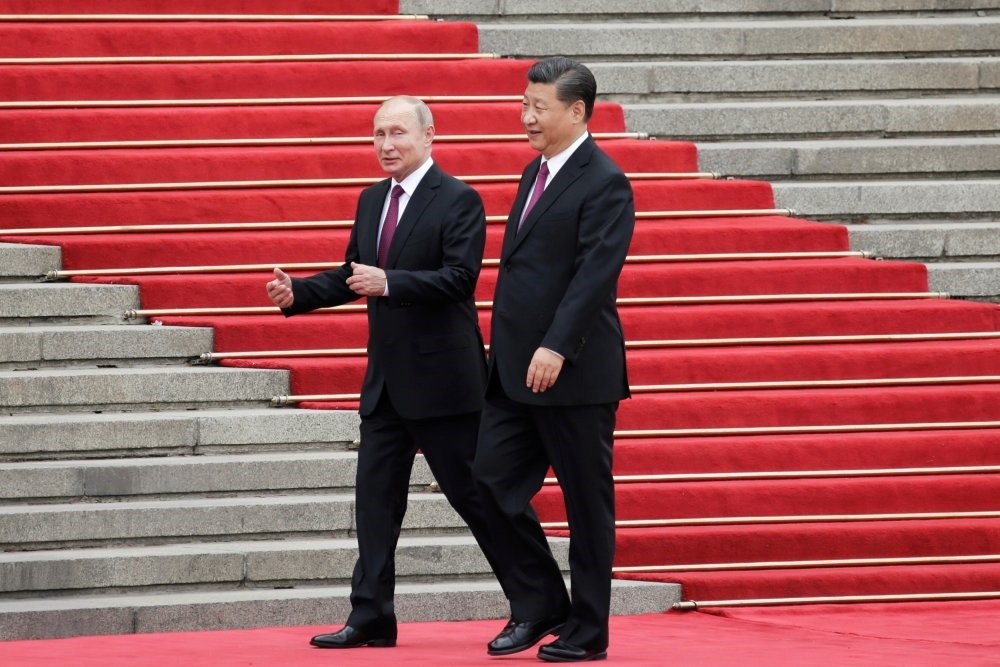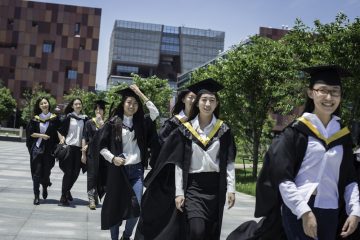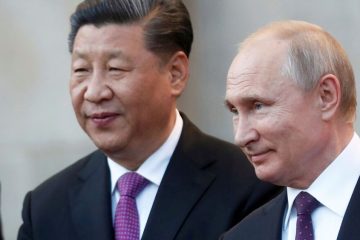Russia is both a problem and a partner for China

Chinese leader Xi Jinping sees Russian President Vladimir Putin as a valuable ally in challenging the dominance of the United States in the global order.
However, the relationship also poses a concern for China as American and European officials caution Beijing about supporting Russia’s military reconstruction.
Putin arrived in Beijing on Thursday, marking his first trip abroad since his election victory in March. The two leaders proclaimed an unrestricted friendship shortly before Russia’s invasion of Ukraine in 2022.
Since then, China has been more reserved in its actions, despite its significant support to Russia’s economy. Putin will be looking to gain further support, which has been instrumental in Russia’s ability to withstand Western attempts to isolate it. The visit will also allow him to showcase his continued influence among the Russian public, a message frequently emphasized by state media.
According to Zhu Feng, a professor of international relations at Nanjing University, it is expected that Putin would appreciate a strong and unwavering endorsement from China.
It is highly probable that Putin will receive ongoing support from China in bolstering Moscow’s economy. China will continue to purchase Russia’s affordable energy exports and provide consumer goods that Russia finds challenging to import from other countries.
China has refrained from publicly criticizing the invasion of Ukraine, referring to it as a “crisis” rather than a war. Xi has dismissed suggestions that Beijing should take further action to encourage Moscow to bring an end to the war. However, the Chinese leader has also cautioned against the use of nuclear weapons, a concern that Putin has occasionally brought up in relation to Ukraine.
“We strongly oppose the use of military force against other countries,” Zhu stated. However, it is important to avoid a complete breakdown in relations with Russia. China, being a significant purchaser of Russian oil and gas, happens to be our neighbor. Beijing hopes for an uninterrupted continuation of the relationship. However, as long as the war continues, it poses a diplomatic challenge for China.
The relationship between the two countries is supported by a long-standing friendship between the two leaders, who have had numerous meetings and regularly exchange gifts and birthday wishes. Xi’s initial overseas visit following his successful re-election last year was to Moscow.
Putin’s visit coincides with his recent inauguration for another six-year term. China has emerged as a significant diplomatic channel for him, given his growing isolation on the international stage and restricted mobility following the issuance of an arrest warrant by the International Criminal Court.
The two countries have developed a stronger relationship during the war, as trade has increased significantly last year by over 26% to reach $240 billion. Experts note that there has been a recent slowdown in growth, although they highlight the significant volumes of trade passing through third countries in Central Asia, like Kyrgyzstan.
China is a significant purchaser of Russian oil and natural gas, taking advantage of Europe’s reduced demand due to the ongoing war. Russia also relies on China for consumer goods, which helps sustain a market during a period of sluggish global demand. Chinese vehicles have outperformed numerous European brands in Russia, contributing to China’s achievement as the world’s largest car exporter in the previous year.
“The overall structure of this relationship is quite robust,” stated Jakub Jakobowski, a China researcher and deputy director of the Centre for Eastern Studies, a think tank funded by the Polish government. “Given the ongoing strategic conflict with the U.S., it is likely that they will continue to rely on Russia as their sole viable partner.”
China has been accused by the U.S. of providing assistance to Putin in the reconstruction of his military. This assistance includes the supply of chips for advanced weapons, jet parts, drone engines, and earth movers. China refutes any claims of providing arms to Russia and emphasizes its strict regulation of dual-use equipment, which can have both civilian and military applications.
Although the U.S. has imposed sanctions on Chinese companies for supplying military technologies to Russia, it has refrained from imposing sanctions that would sever Chinese banks from the global financial system. This decision could potentially have significant economic consequences.
Putin’s visit follows Xi’s recent trip to Europe, during which he held meetings with leaders in France, Serbia, and Hungary. Analysts noted that every aspect of the Chinese leader’s visit appeared to target the European segments that are less inclined to support the United States’ firm position on China.
“According to Jakobowski, this European visit was highly favorable from Putin’s perspective and in terms of the China-Russia relationship. Xi Jinping’s planning was commendable,” said Jakobowski. Based on the countries he visited and the overall context, it is evident that this was strongly against American interests.
Putin’s itinerary includes not only meetings in Beijing, but also a visit to Harbin, a city in northeastern China that Russia played a significant role in developing during the late 19th century. Harbin was transformed into a bustling hub for a railway network in the region. The city maintains elements of its historic Russian architecture and is currently hosting a Russia-China Expo, which highlights the trade and investment connections between the two nations.
Speculation has been fueled by Putin’s visit to China’s northeast, as it suggests the possibility of him also traveling to North Korea. Russia’s growing closeness to North Korea since the war in Ukraine has further intensified this speculation. In September, Putin had a meeting with North Korean leader Kim Jong Un in Russia. Moscow has sought assistance from North Korea to bolster its arms production, as its own supplies have been depleted due to the ongoing conflict in Ukraine. In January, it was announced that Putin would be visiting Pyongyang in the near future.
According to Zhu, a Chinese scholar, China is feeling uneasy about the strengthening relationship between Russia and North Korea. China is concerned that this alliance may lead to a situation similar to their alignment during the Korean War.
“Beijing firmly opposes the idea of getting caught in another Cold War,” stated Zhu.
During an interview with Chinese state media prior to his trip to China, Putin emphasized the shared objective of Russia and China in asserting themselves against the United States and its allies. “We also oppose Western efforts to enforce a system built on falsehoods and double standards, based on arbitrary rules of unknown origin,” he stated in an interview with the state-run Xinhua News Agency.
Putin expressed his support for China’s initiatives to bring an end to the conflict in Ukraine. Last year, China released a position paper on Ukraine and sent Li Hui, an envoy, to European capitals to engage in discussions regarding possible diplomatic solutions. However, European officials perceived China’s stance as closely aligning with that of Russia. Beijing’s assertion that Russia has the right to “indivisible security,” without any other country’s security measures posing a threat, echoes Putin’s rationale for the invasion of Ukraine.



